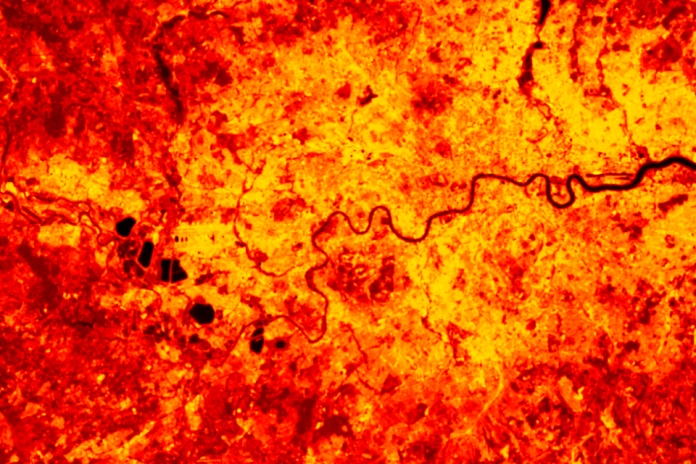UK Space Agency will support two new projects. The first envisages using satellite to monitor and map heat in locations at greatest risk from climate change. Development of a prototype Climate Risk Index tool (CRISP) is the second project that is aimed at delivering risk assessments based on satellite and climate data to help the financial sector provide vital insurance products.
The latest UK climate forecast indicate a hot summer like 2018 is likely to occur every other year by 2050, by which time the number of heat-related deaths could more than triple from today’s level in the absence of additional adaptation; from around 2,000 per year to around 7,000. About 1.2 billion people around the world could face heat stress conditions by 2100 at current levels of global warming.
Monitoring and mapping heat in locations at greatest risk is an imperative in this context. This is where data from satellites comes handy.
The UK Space Agency is going to support two new projects towards this that will provide decision-makers with vital information to help deal with the effects of climate change and improve lives around the world.
The first project is a collaboration between the National Centre for Earth Observation (NCEO) and Ordnance Survey (OS), which will provide meaningful insights for policy-makers to manage the impacts of climate change in hot spots across the UK and beyond. Using NCEO land surface temperature data derived from thermal infra-red sensors in space, OS will then help customers understand and identify how the data can be applied effectively.
The Earth observation data used in the pilot will indicate extreme events and locations that may show greater risk to human health, such as cities where heat stress is a particular concern. By providing easier and better access to insightful evidence through the pilot and through working with the Office for National Statistics, the UK public sector will be able to tackle climate change more effectively with accurate data from space.
Satellite observations of land surface temperatures, and their change, are increasingly recognised as being able to provide unique and detailed knowledge to better facilitate the understanding of climate change and thus to inform planning and ‘climate-adaptive’ policies to deal with extreme events, such as heatwaves.
Development of a prototype Climate Risk Index tool (CRISP) is the second project that UK Space Agency will support that will see Telespazio UK collaborate with Assimila. This project will deliver risk assessments based on satellite and climate data to help the insurance sector provide vital financial products to those at risk from droughts and wildfires.
Using climate data from an ensemble of climate project models, historical reanalysis and Earth Observation data the prototype will focus on two examples – agricultural drought and wildfires – to show insurance companies how to use the data in their own assessments to benefit the finance sector.
CRISP builds on work by the Space4Climate (S4C) Climate Risk Disclosure task group. The S4C work provides the underlying technical capability to determine climate indices – based on consistent identification of extreme climate events and changes in sea level derived from different long-term data records of Earth Observation and climate re-analysis datasets.
***
Source:
UK Space Agency 2021. Press release – Space data helping Earth adapt to challenges of climate change. Published 8 November 2021. Available online here




































